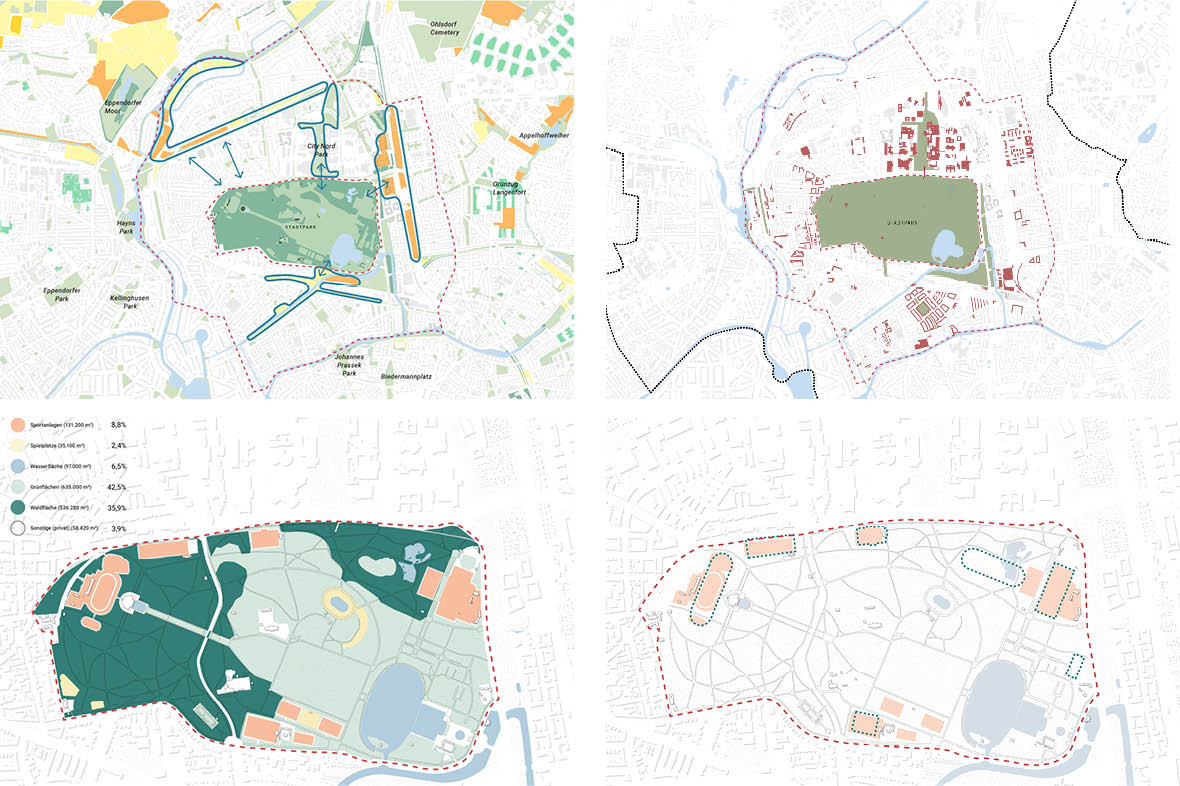


The over 100 years old city park has been Hamburg‘s “green living room” since its creation and an international example for the development of private city gardens into a large public city park. It was and is a popular place where people come together for recreation and experiencing nature, but also for sport, art and culture.
Designed in collaboration between Fritz Schumacher and Ferdinand Sperber, the park was first opened in 1914 and completed in 1928. The realization was supervised by Otto Linne. This large city park is an important example of German landscape design and the transformation from city garden to city park. Over the past 25 years, the city has taken various measures to improve the park, make this green monument valuable again and consider the demands of changing leisure and recreational use. Today, new residential quarters, traffic planning and changed usage behavior together with the associated increasing user pressure pose new challenges for the listed city park.

In close collaboration with Joachim Schnitter Gartendenkmalpflege (historical garden protector), Karres en Brands conducts a research and creates a masterplan with several detailed zoom-ins of the area. A study taking into account the historical development, current uses, conflicts and visitor wishes shows the potential of the city park and its surroundings to gain space and optimize use, taking into account the mobility transition and climate change. A focus was placed on an extensive user survey both on site and online, as well as direct discussions with the operators based in the city park.

Karres en Brands and Joachim Schnitter will study in two phases how the publicly usable area of the park can be expanded and look at the possibilities for expansion of the park both within the current boundaries and in the entire environment. Based on an intensive analysis of the current and requested applications in the park, the team will develop exemplary solutions for reorganizing the functions in the park and prioritizing intervention areas for future development.
| Locatie. | Hamburg, Germany |
|---|---|
| Opgave | Study, research analysis, development strategy, participation |
| Omvang | ca. 900 hectare study area, of that ca. 150 hectare park |
| Ontwerp | 2020 - 2022 |
| Status | 1st phase analysis realized |
| Opdrachtgever | City of Hamburg, Bezirksamt Hamburg Nord |
| In samenwerking met | Joachim Schnitter |